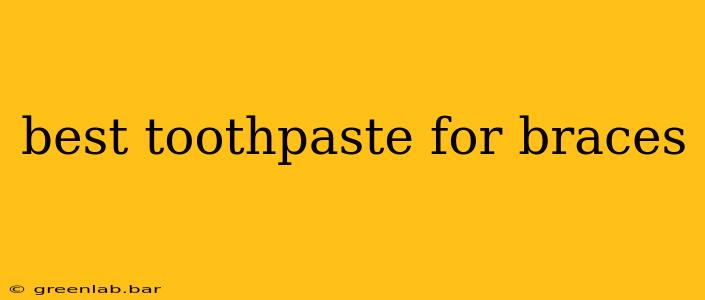Maintaining optimal oral hygiene with braces can feel like a monumental task. The added wires and brackets create more nooks and crannies for food particles to get trapped, increasing the risk of cavities and gum disease. Choosing the right toothpaste is crucial in mitigating these risks and ensuring a healthy, radiant smile throughout your orthodontic treatment. This guide will help you navigate the options and select the best toothpaste for braces.
Why Specialized Toothpaste Matters for Braces
Regular toothpaste is effective for general oral hygiene, but individuals with braces need a toothpaste that addresses the unique challenges presented by orthodontic appliances. These challenges include:
- Increased Plaque Buildup: Braces provide extra surfaces for plaque to adhere to, making thorough cleaning more difficult.
- Higher Risk of Cavities and Gum Disease: Trapped food particles around brackets and wires create an ideal breeding ground for bacteria, leading to a greater risk of caries and gingivitis.
- Sensitivity: Some individuals experience tooth sensitivity during orthodontic treatment, necessitating a toothpaste formulated to address this issue.
Key Features to Look for in a Braces-Friendly Toothpaste
When selecting a toothpaste for braces, consider these important features:
- Fluoride: Fluoride is crucial for strengthening tooth enamel and preventing cavities. Look for a toothpaste with a high concentration of fluoride (at least 1350 ppm).
- Mild Abrasiveness: While abrasive ingredients help remove surface stains, excessively abrasive toothpastes can damage tooth enamel, especially around brackets. Opt for a toothpaste with a low RDA (Relative Dentin Abrasivity) value.
- Anti-Plaque and Anti-Cavity Properties: Choose a toothpaste containing ingredients proven to fight plaque and prevent cavities, like triclosan or zinc citrate.
- Sensitivity Relief: If you experience tooth sensitivity, look for a toothpaste specifically formulated to soothe sensitive teeth. These often contain ingredients like potassium nitrate.
- No Harsh Chemicals: Avoid toothpastes with harsh chemicals, artificial sweeteners, or dyes that can irritate sensitive gums or interact negatively with orthodontic appliances.
Top Toothpaste Recommendations for Braces Wearers
While recommending specific brands directly is outside the scope of this unbiased guide (to avoid any conflict of interest or appearance of promotion), the following criteria will help you select the best toothpaste for you:
Consider these factors when making your choice:
- Your specific needs: Do you have sensitive teeth? Are you prone to cavities?
- Your dentist's recommendations: Your orthodontist or dentist can provide personalized recommendations based on your individual oral health.
- Ingredients: Look for the key features mentioned above (fluoride, low RDA, anti-plaque/anti-cavity agents, and sensitivity relief, if needed).
- Your budget: Toothpastes range in price, so find a balance between quality and affordability.
Maintaining Optimal Oral Hygiene with Braces
Using the right toothpaste is just one piece of the puzzle. Here are additional essential habits for maintaining optimal oral hygiene while wearing braces:
- Brush Thoroughly: Brush your teeth at least twice a day, using a soft-bristled toothbrush and gentle circular motions. Pay special attention to the areas around your brackets and wires. Consider using an interdental brush or floss threader to clean between your teeth and under your wires.
- Floss Daily: Flossing removes food particles and plaque from between your teeth, areas your toothbrush may miss.
- Use Mouthwash: A fluoride mouthwash can further strengthen your enamel and help prevent cavities.
- Maintain Regular Dental Checkups: Schedule regular checkups and cleanings with your dentist and orthodontist to monitor your oral health and address any potential issues.
By following these tips and selecting a suitable toothpaste, you can significantly improve your chances of maintaining a healthy smile throughout your orthodontic treatment. Remember, consulting your dentist or orthodontist is always recommended for personalized advice.

